Self-Assessment for Gambling Addiction – Identifying the Signs Early with Stake India
Verified and updated: 08 January, 2025
At Stake, we take responsible gaming seriously and believe in helping players recognize when gambling habits start to become problematic. Gambling should always be a fun and enjoyable activity, but for some, it can develop into an addiction that leads to negative consequences. The key to preventing gambling addiction is early recognition, and that begins with self-assessment.
What is Gambling Addiction?
Gambling addiction, or problem gambling, is characterized by an uncontrollable urge to gamble, even when it leads to negative consequences. It can affect anyone, regardless of their age, background, or experience with gambling.
In a healthy gambling experience, players gamble for entertainment, understand their limits, and know when to stop. However, when gambling turns into an addiction, it can lead to financial problems, emotional distress, and strained relationships.
By regularly assessing your gambling behavior, you can prevent these negative outcomes and keep gambling enjoyable and safe.
How Self-Assessment Helps in Preventing Gambling Addiction
Self-assessment is one of the most effective ways to monitor your gambling habits. When you conduct a self-assessment, you can evaluate:
- How often you gamble
- How much money you spend
- The emotional impact of gambling
- Whether gambling is interfering with other areas of life
Identifying patterns early can help you stay in control and take the necessary steps if your gambling is becoming problematic. At Stake India, we encourage players to complete self-assessment regularly to ensure a responsible gaming experience.
Self-Assessment Questionnaire for Gambling Addiction
Answer the following questions honestly. There are no right or wrong answers, but being truthful with yourself will provide valuable insight into your gambling habits. For each question, choose the answer that best describes your behavior over the past few weeks or months.
1. How often do you gamble?
- A) Almost every day
- B) A few times a week
- C) Once or twice a month
- D) Rarely
2. Do you find yourself gambling for longer periods than planned?
- A) Yes, often
- B) Sometimes
- C) Rarely
- D) Never
3. Have you ever lied about your gambling activities?
- A) Yes, frequently
- B) Occasionally
- C) Rarely
- D) Never
4. Do you gamble to escape problems or feelings of stress, anxiety, or depression?
- A) Yes, always
- B) Sometimes
- C) Rarely
- D) Never
5. Do you find yourself trying to win back money you have lost (chasing losses)?
- A) Yes, often
- B) Sometimes
- C) Rarely
- D) Never
6. Have you experienced financial problems due to your gambling?
- A) Yes, significant problems
- B) Some minor issues
- C) No, but I worry about it
- D) No, never
7. Has gambling negatively affected your relationships (e.g., family, friends, or coworkers)?
- A) Yes, a lot
- B) Somewhat
- C) No, not at all
- D) Not sure
8. Do you feel anxious or upset when you are unable to gamble?
- A) Yes, very anxious
- B) Somewhat, but I can cope
- C) Rarely
- D) Never
9. Do you ever hide the extent of your gambling from others?
- A) Yes, often
- B) Sometimes
- C) Rarely
- D) Never
10. Do you feel like gambling is taking up more of your time and energy than other activities?
- A) Yes, it’s my main focus
- B) Sometimes, but I try to balance it
- C) Rarely
- D) Never
Interpreting Your Results
Now that you have answered the questionnaire, it’s time to evaluate your responses. Here’s a simple guide to help you understand what your answers may indicate:
- Mostly A’s: If you answered “A” to many questions, you may be exhibiting signs of gambling addiction. It’s essential to take immediate steps to regain control over your gambling habits. Consider using the responsible gaming tools available at Stake India, such as self-exclusion, deposit limits, and session time limits. Additionally, seeking help from a professional counselor or support group is strongly advised.
- Mostly B’s: If your answers lean towards “B,” it suggests that you may have some areas of concern in your gambling habits. While not an addiction yet, it’s important to stay aware of your behavior and consider implementing responsible gaming measures to prevent escalation.
- Mostly C’s and D’s: If most of your responses were “C” or “D,” it indicates that you are generally in control of your gambling habits. However, it’s always a good practice to review your gambling behavior periodically to ensure it stays within healthy boundaries.
What to Do if You Recognize Gambling Addiction Signs?
If the self-assessment results indicate signs of gambling addiction, the next step is to take action. Here are some important steps to take:
- Set Limits
At Stake India, we provide tools that allow you to set deposit limits, session time limits, and loss limits. Use these tools to stay in control of your gambling and prevent excessive losses. - Self-Exclusion
If you feel that you need a break from gambling, consider using the self-exclusion feature available on the platform. This tool allows you to temporarily or permanently suspend your account, giving you the time needed to reflect and seek help. - Reach Out for Help
Don’t hesitate to talk to someone you trust, whether it’s a friend, family member, or a professional. If you feel that gambling is affecting your mental health, consider speaking to a counselor or therapist who specializes in gambling addiction. - Explore Support Groups
There are several support groups and hotlines available to help people struggling with gambling addiction. In India, you can access support services from organizations like Gamblers Anonymous and BeGambleAware. - Take Regular Breaks
Even if you don’t have a problem with gambling, taking regular breaks is essential. Gambling should always be a form of entertainment, not an obsession. Scheduling breaks will help you maintain a healthy perspective.


